Amelia Cheong Participant in the 40th Advanced Studies Program shares her reflections and Insights
Last Updated (Wednesday, 02 April 2025 07:17)
Reflection: ASP 40th Batch
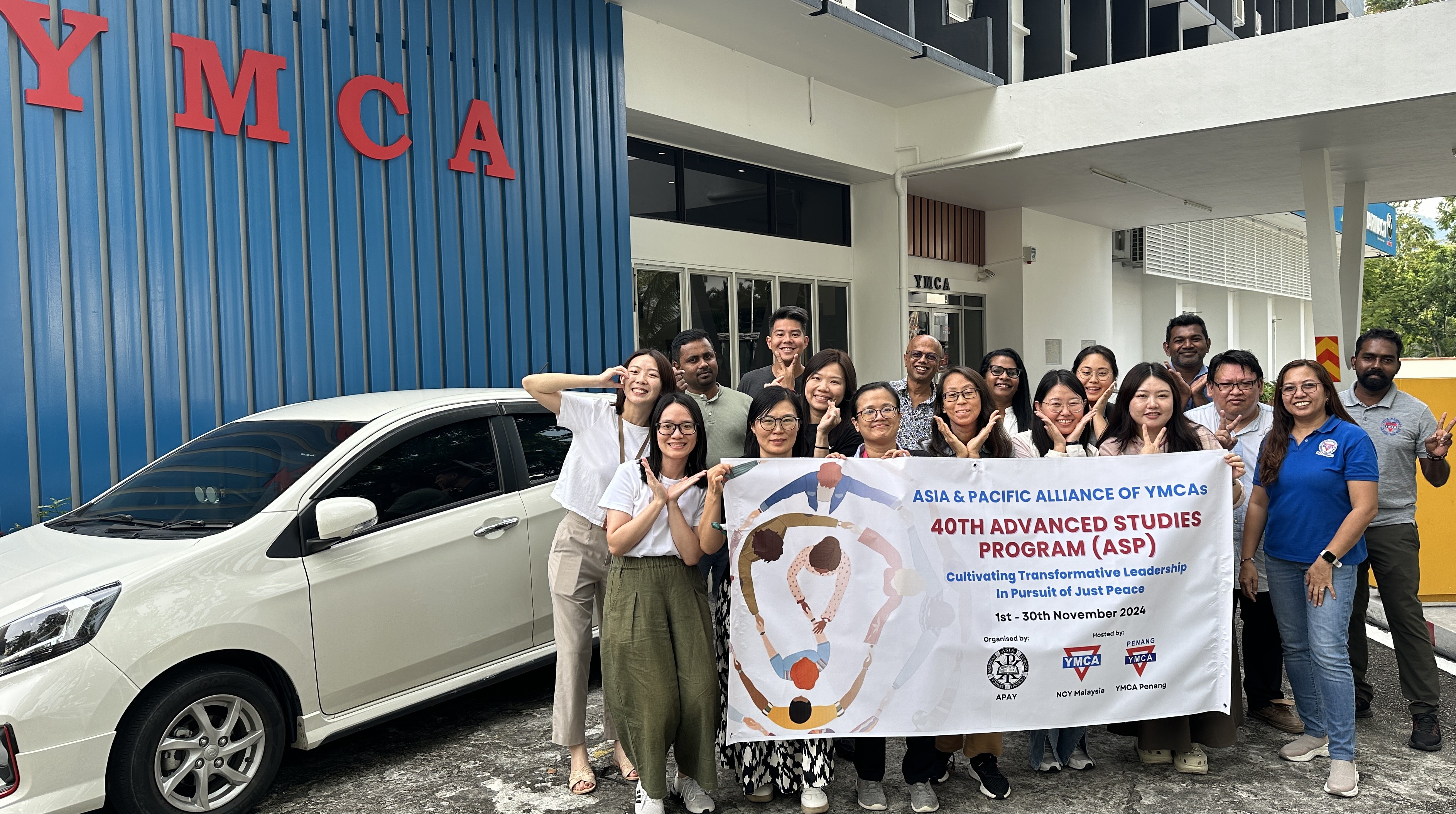
My Learning and Reflection
I have always cherished traditions and culture, especially in Malaysia, with its rich diversity. Whenever YMCA KL hosts international groups through GATN or APAY, I eagerly share Malaysia's vibrant culture and diversity through its food and traditions. Through the GATN programme, I have learned how sustainable travel can simultaneously contribute to local communities, economies, and cultures while advocating for women, children, and the environment.
Having served with YMCA KL for 9 years and 6 months by the end of 2024, I have attended over 10 training sessions and meetings from GATN, Green Ambassador to Climate Defender initiatives. I hope that through the Advanced Study Program (ASP), I can work alongside Ben and Vincent, as all three of us have participated in this program, to guide YMCA KL in realigning its current direction to better serve our communities and achieve our shared goals.
One of the most significant experiences during ASP was visiting the Orang Asli Semai Village in Gopeng, Perak, during our group’s second outing, following our visit to the Asia Community Service Centre in Penang. Although ASP was held in Penang rather than Kuala Lumpur, I felt a strong sense of responsibility to represent Malaysia and share our culture during the trip. I took the initiative to introduce participants to local food in Penang and helped with translations while ordering at drink stalls in Gopeng, where most vendors spoke Cantonese or Malay. Guiding them through these experiences and witnessing their appreciation of Malaysia’s culture gave me a profound sense of fulfilment and joy, knowing I was helping them connect with the richness of our heritage.
Upon arriving at the Orang Asli Semai Village, I was struck by its beauty, surrounded by greenery and natural stones—a stark contrast to the Aborigine villages I had visited previously. The natural grass, which I learned from Pastor Anis was native to the area, reminded me of the stark differences between rural and urban life. In Kuala Lumpur, such grass is a luxury, sold by square feet for residential compounds. This insight highlighted how Kuala Lumpur has evolved with advancing technology and urbanization, becoming a concrete city vastly different from my childhood surroundings and the natural environment of the Orang Asli village.
Despite their simple lives, the villagers prioritize education. The mothers expressed their hopes for their children to receive a better education than they had. During our evening sharing session, we emphasized the importance of preserving their cultural heritage, even as many have embraced Christianity. Unfortunately, the Malaysian government does not fully support non-Muslim aborigine communities, leaving Christian Orang Asli villages to struggle with improving their living conditions40th Advanced Study Program (1st – 30th November 2024) unless they are part of Muslim-majority communities. This disparity was disheartening but also illuminating, showing the resilience of the Orang Asli people.
The visit also reminded me of the privileges enjoyed by those of us living in the city, where we often take basic comforts for granted. Even during the trip, some participants including me found it challenging to adapt to the simple washroom facilities, despite them being equipped with basic needs.
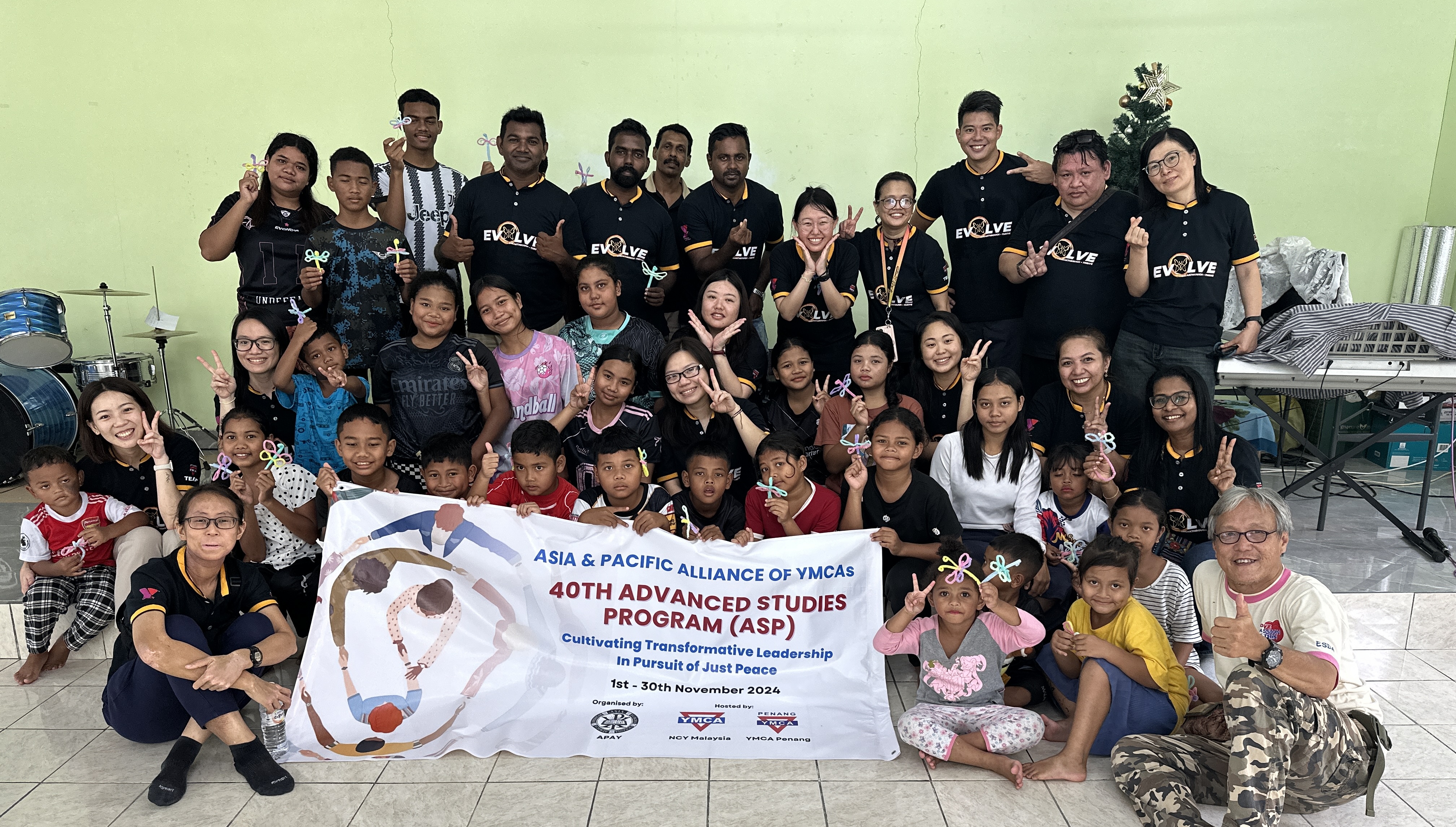
Another impactful insight came from the Asia Community Service Centre in Penang. It reminded me of the dedication of one of YMCA KL’s former staff members, who tirelessly advocated for the Deaf Community throughout her career until her retirement. She consistently created a safe and welcoming space for the Deaf Community within YMCA KL. Similarly, Ms. Aina, who oversees the Asia Community Service Centre, has established a supportive environment for individuals with mental health challenges. This space enables them to develop skills, gain independence, and integrate into society. It also reinforces YMCA KL’s commitment to community empowerment through meaningful
partnerships, such as on-site training at our hostel and GATN programmes.
Through the programmes, I developed a profound appreciation for the role of the YMCA's spiritual initiatives, such as Bible studies and interfaith dialogue sessions. These programmes provide a platform for individuals to deepen their faith while cultivating essential values like empathy and integrity. In Malaysia’s rich and diverse cultural landscape, these efforts go beyond spiritual growth they foster mutual respect and create opportunities for individuals from various faiths to connect, learn, and build understanding.
At YMCA Kuala Lumpur, our Christian Identity and Mission remain at the heart of our efforts, despite the challenges of low response to Christian-focused activities. This has not dampened our spirit. We continue to uphold Christianity’s values while remaining true to our inclusive principles. Being in a multicultural and multireligious country, YMCA KL welcomes everyone—regardless of their religion or race to be part of the YMCA family.
The YMCA’s efforts in promoting interfaith dialogue are vital in nurturing harmony and understanding within Malaysia’s diverse cultural and religious fabric. These programs create a platform for individuals to appreciate and learn from different faith traditions, fostering inclusivity and a spirit of unity.
As YMCA KL situated in Brickfields where, Buddhist Temple, Hindu Temple, Mosque and Church are located in the same row or area. Is a great opportunity to organise educational seminars and collaborations. Through the years we witness celebrations of various religious festivals around YMCA KL.40th Advanced Study Program (1st – 30th November 2024)
During the Mission in Context session, Mr. Nam’s sharing brought profound insight into the meaning of the YMCA logo. The logo not only symbolises Body, Mind, and Spirit but represents the holistic development of an individual, the local YMCA’s service to its community, and the global movement’s strengthening. Reflecting on the World YMCA’s logo and its inspiration from John 17:21, “That They All May Be One,” it became clear that YMCA operates not through the efforts of one individual but through collective action by a community.
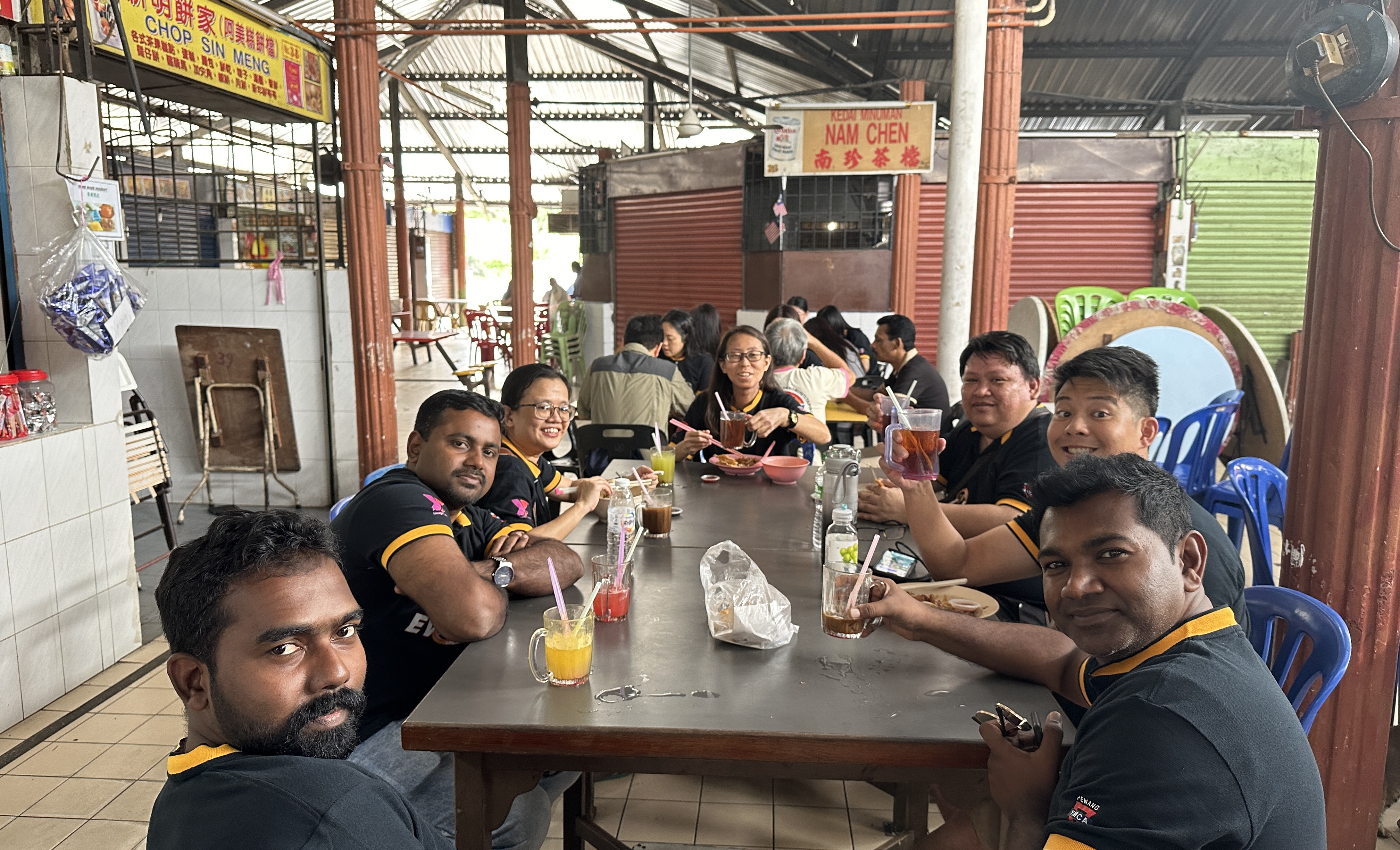
A local YMCA shapes individuals by nurturing their Body, Mind, and Spirit, and these individuals often continue to serve the YMCA as staff, members, or even board members. As a non-governmental and non-profit organization, not everyone is initially inclined to commit to working with the YMCA. However, the seeds planted by YMCA in each individual cultivate a higher likelihood of them contributing as staff, committee members, or part of its constituency.
Staff and members who have journeyed with YMCA deeply understand its mission and can design programmes that are relevant, meaningful, and centred on youth and community. In turn, these programmes enable the local YMCA to embody and communicate the broader YMCA movement effectively.
As a YMCA, we are guided by mission clarity to serve the community and create impactful transformation. This transformation ensures social relevance and reinforces the YMCA’s ability to remain operational, relevant, and impactful within its environment. When the community recognises the relevance of the YMCA movement, it becomes a reflection of its enduring capacity to inspire and sustain meaningful change.
From the sessions on Lay Professional Partnership, Good Governance, and Movement Strengthening, I found a strong connection to the current situation at YMCA KL. At present, the Heads of Departments (HODs) at YMCA KL are feeling lost and stressed due to the changes of direction away from the current vision and mission of YMCA KL. Without a General Secretary (GS) in place, decisions from the board are conveyed directly to the HODs with limited deliberation or context.
The absence of a General Secretary has created a significant gap in communication and understanding. A GS, with a deeper insight into the HODs’ challenges and working environment, could act as a bridge, discussing board decisions with the Honorary Secretary and presenting them to the HODs in a more collaborative manner. This would foster openness and mutual respect, ensuring that decisions are better received and understood.
Currently, many HODs feel dictated to carry out tasks or projects without being involved in meaningful discussions or planning. This lack of engagement has led to frustration among the HODs, which is often 40th Advanced Study Program (1st – 30th November 2024) inadvertently channelled to lay staff, creating a stressful work environment. The pressure to meet demands under these circumstances has further strained relationships, resulting in a growing sense of distrust between the HODs and the Board.
These challenges highlight the importance of strong governance structures and the critical role of a General Secretary in fostering communication, collaboration, and trust within the organisation. Addressing these issues through improved governance practices and leadership could significantly enhance the morale and effectiveness of YMCA KL’s team.
Based on the APAY’s Quadrennial Program Plan (QPP) 2024–2027, the APAY Climate Defenders project aligns with Pillar 3 of the YMCA Vision 2030 and SDG 13 (Climate Action). This project aims to empower young individuals to become champions of environmental protection and sustainability by leveraging partnerships with local organisations to raise awareness and drive actionable measures to combat climate change at the community level.
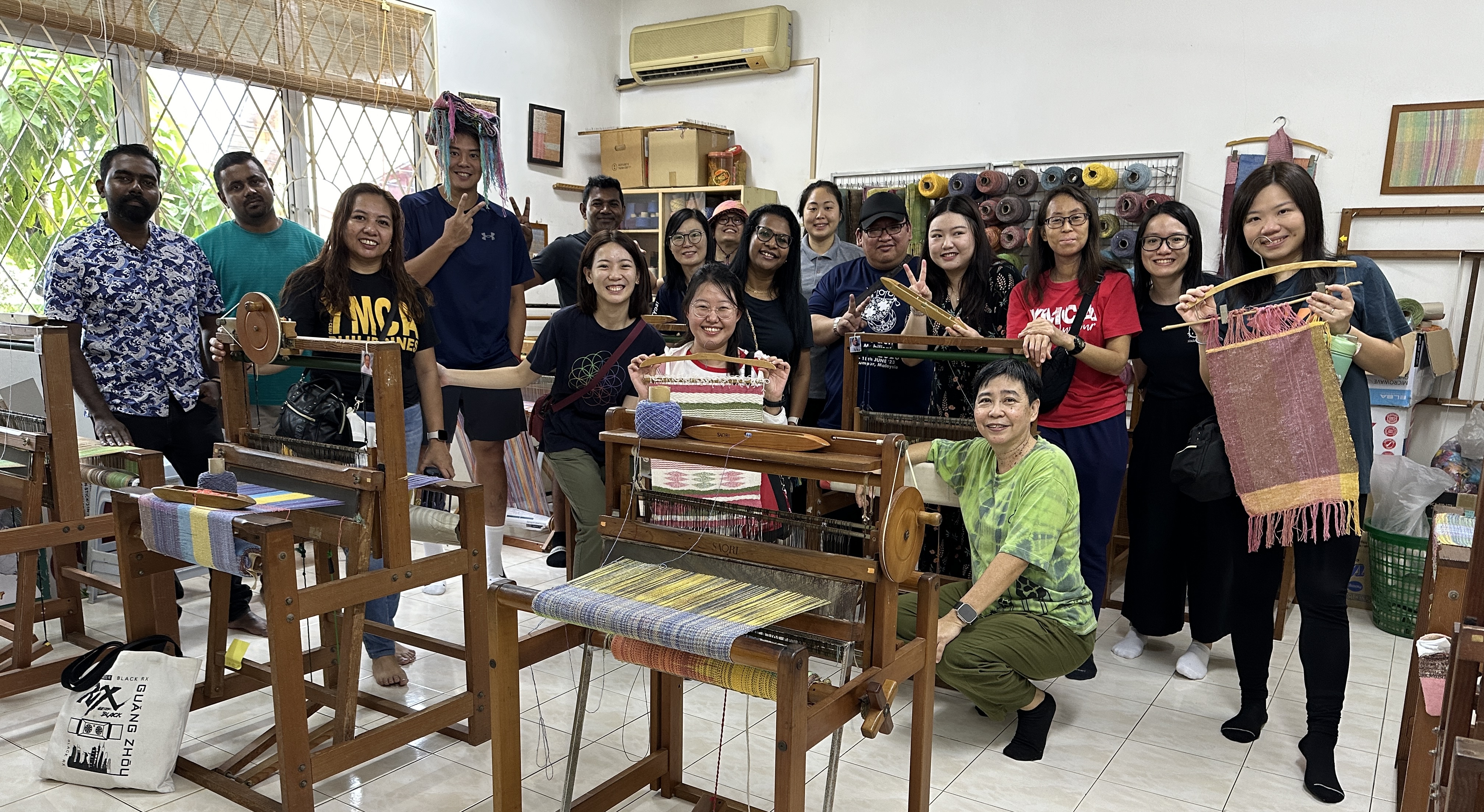
A pivotal goal of this initiative is to advance toward achieving carbon neutrality for YMCA by 2030 through the strategic implementation of diverse programmes and initiatives. In addition to empowering young individuals to combat climate change, the project will address critical areas such as climate-induced disaster risk reduction (DRR) and climate change adaptation (CCA) to build resilience.
The presentation by Mr. Chan Beng Seng on Climate Justice for a Sustainable Planet highlighted the urgency to embrace the programme plan under the Sustainable Planet pillar of the QPP. YMCA KL’s efforts in this area are particularly relevant as we own a building that is over 50 years old. This building has started to produce significant carbon emissions due to wear and tear, with some parts eroding and requiring repair. Additionally, the new building under construction will, upon completion, also contribute to carbon emissions through its operational activities.
Recognising these challenges, it is practical for internal stakeholders to begin adopting sustainable practices now to familiarise themselves and integrate these practices into daily operations. Early adoption will also ensure that once the new building is operational, YMCA KL is better equipped to minimize its carbon footprint effectively.
In line with this vision, I am committed to taking the initiative to guide my colleagues by providing internal training. I believe that for any project to be successful, it must begin internally. By embedding sustainable practices within YMCA KL’s operation—such as through our hostel, facilities, programmes, and external events—we can create a ripple effect that extends these practices to our40th Advanced Study Program (1st – 30th November 2024) members and guests. This approach ensures a holistic and impactful implementation of sustainability principles, advancing YMCA KL’s role as a leader in climate action and environmental stewardship.
During the session on Geopolitical Shifts in the Asia-Pacific Context, I gained valuable insights into how the economic power of countries like the USA, India, and China can significantly influence smaller economies. For a country like Malaysia, maintaining a balanced political relationship with major global powers—particularly the USA, China, and India—is crucial to avoiding marginalization or dominance.
These power dynamics are also evident in the global media landscape. News outlets such as CNN (USA) and BBC (UK) often filter and present news narratives that align with their respective national interests. For instance, during the session on Restoring Peace with Justice Amidst Conflict, War, and Violence, the ongoing war in Israel, Palestine, and Lebanon was discussed. The conflict between Israel and Palestine, which escalated on October 7, 2023, gained global attention largely due to the involvement of powerful states that shape its visibility and narrative.
Malaysia, being a multicultural, multiracial, and multi-religious nation, is not immune to the ripple effects of global conflicts, wars, and violence. These challenges make the country vulnerable as it seeks to balance political pressures and address advocacy efforts from its citizens.
As a peace-building organisation committed to interfaith cooperation, YMCA must adopt a neutral stance on various global conflicts—whether large or small. By promoting dialogue, understanding, and peace-building initiatives, YMCA can contribute to fostering harmony and resilience amidst the complexities of global and local political dynamics.
The Advanced Studies Program (ASP) has been an enlightening journey, deepening my understanding of YMCA’s mission and its global impact. It reinforced the importance of sustainability, interfaith dialogue, and community empowerment while emphasizing the need for effective governance and collaboration within YMCA KL.
These insights have inspired me to integrate sustainable practices, promote inclusivity, and strengthen community connections through meaningful initiatives. With renewed purpose, I am committed to contributing to YMCA KL’s mission, ensuring it continues to inspire positive change and foster unity in our diverse society.
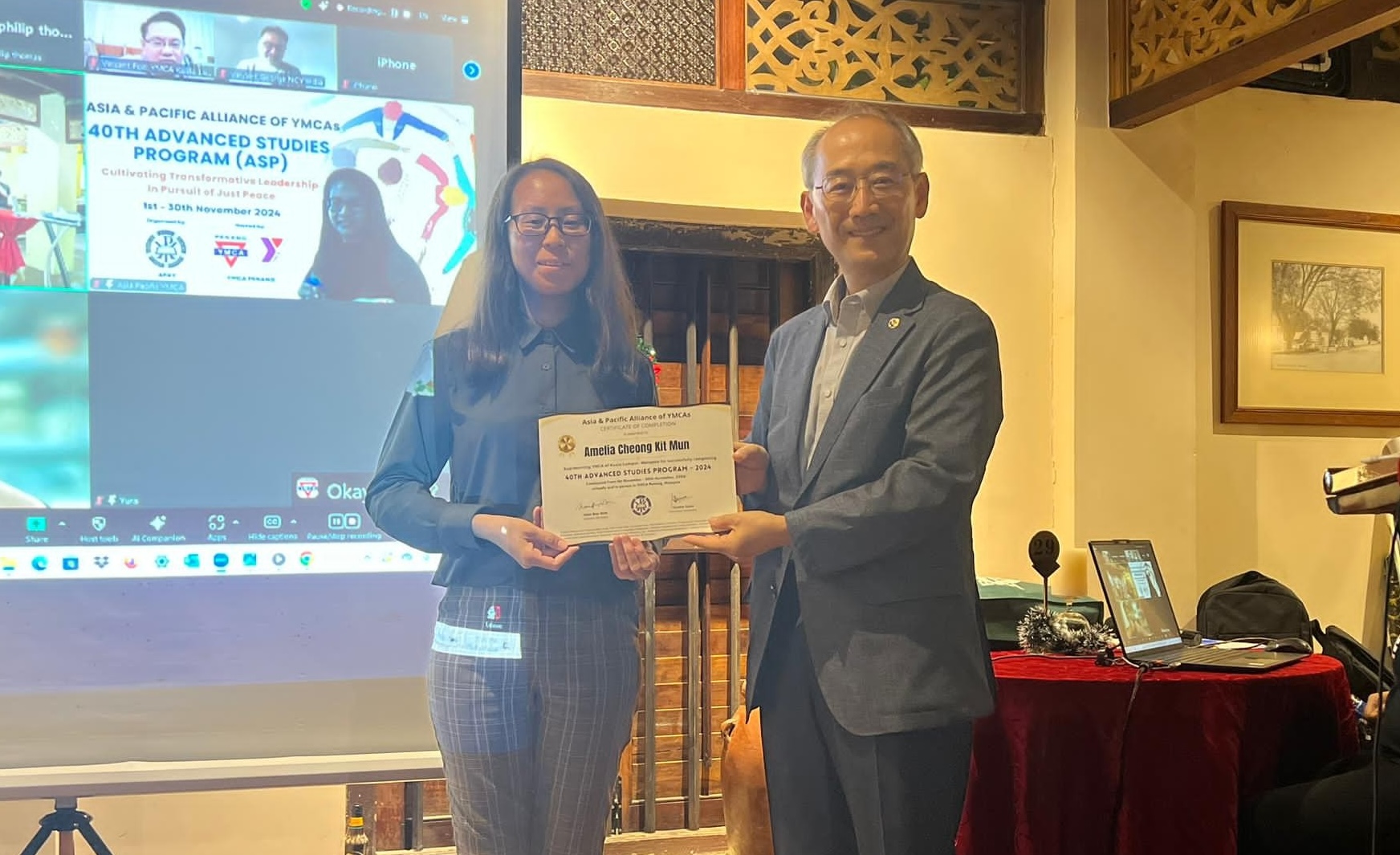
by Amelia Cheong





